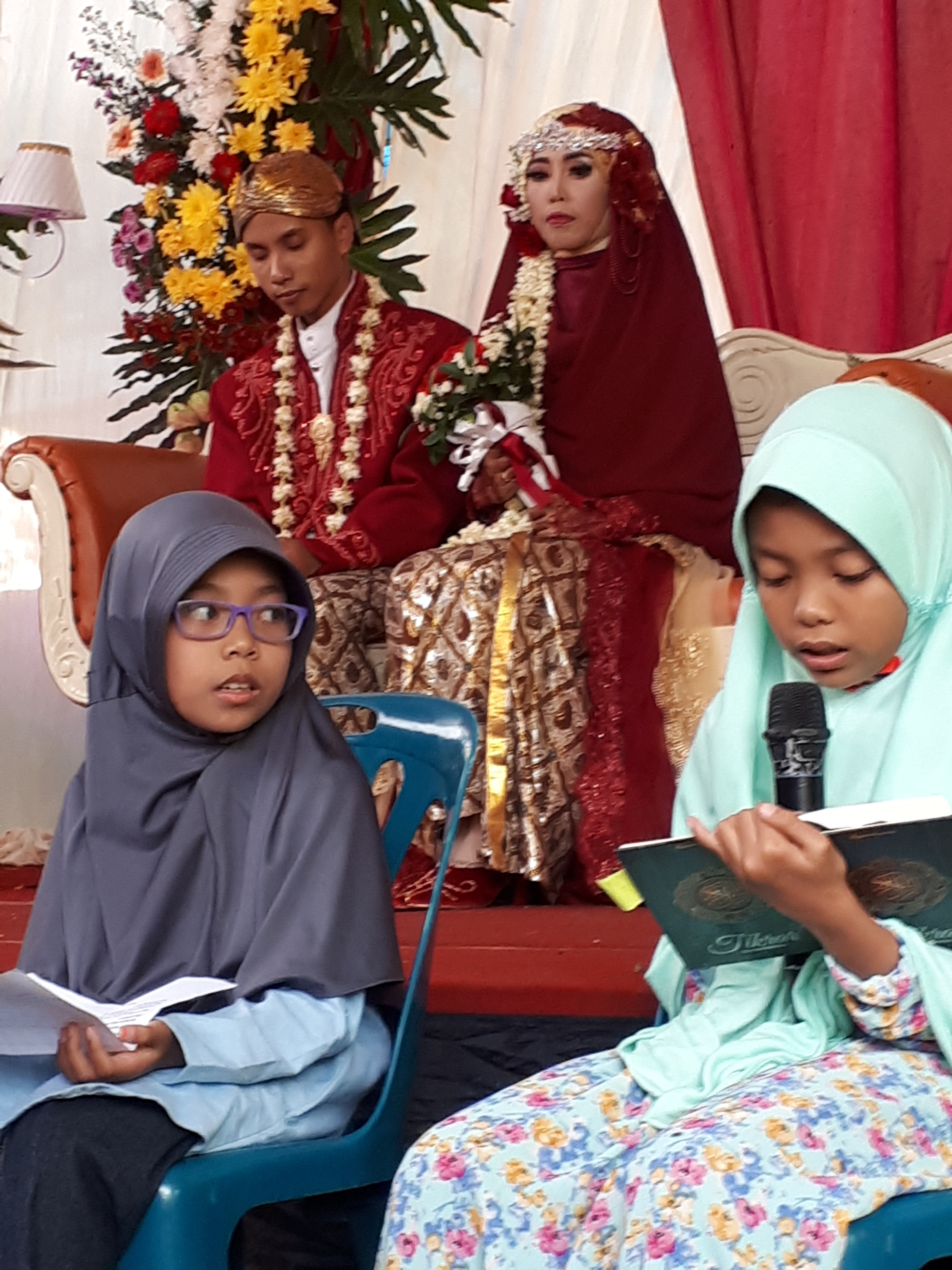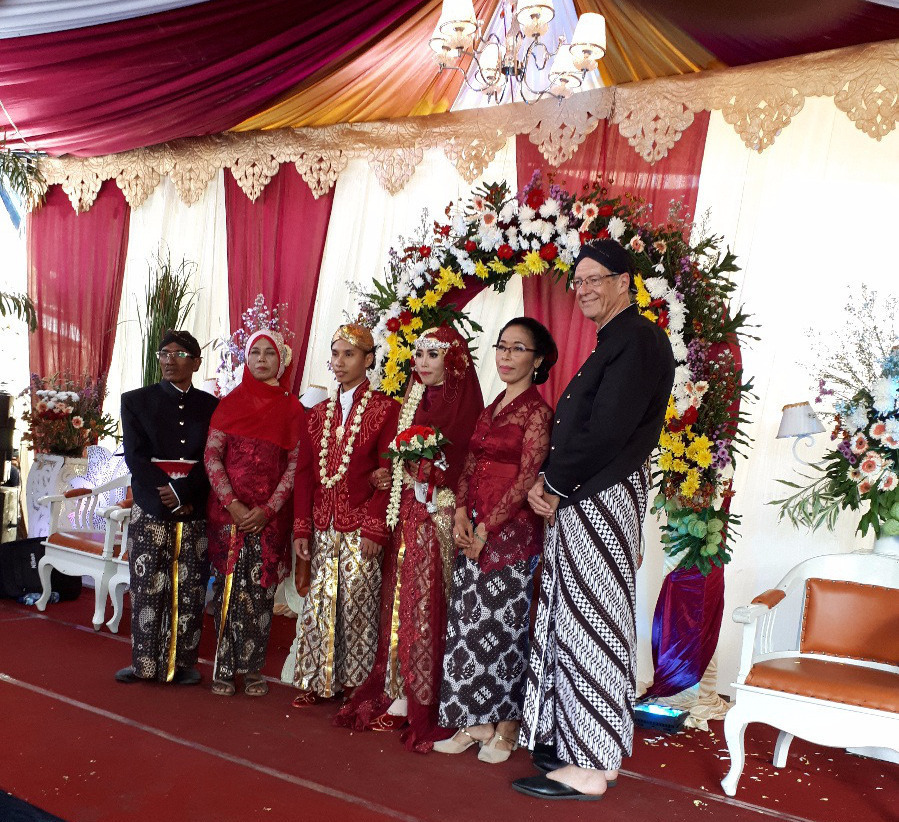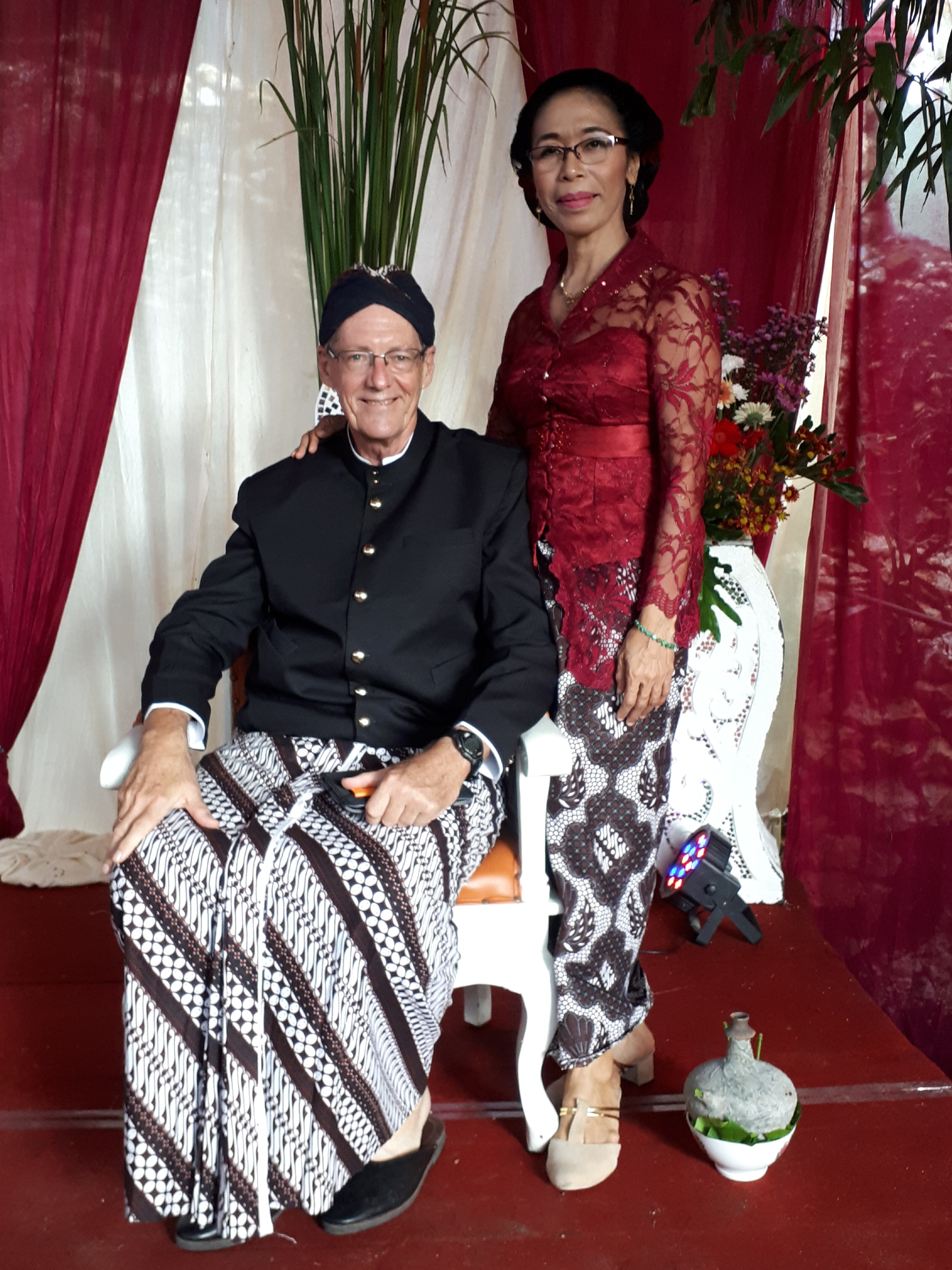A Letter from Bernie and Farsijana Adeney-Risakotta, serving in Indonesia
November 2017
Write to Bernie Adeney-Risakotta (or baryogya@gmail.com)
Write to Farsijana Adeney-Risakotta
Individuals: Give to E200303 for Bernie and Farsijana Adeney-Risakotta’s sending and support
Congregations: Give to D506007 for Bernie and Farsijana Adeney-Risakotta’s sending and support
Churches are asked to send donations through your congregation’s normal receiving site (this is usually your presbytery).
Dear Family, Friends and Colleagues,
Yesterday, the Cultural Attaché from Austria visited the Indonesian Consortium for Religious Studies (ICRS) and shared his country’s worry about the rise of radical Islam. In just three years, Austria has been flooded with Muslim refugees, equivalent to 2% of their total population. He hopes that Indonesia may be a model of how Muslims and non-Muslims can live in peace and tolerance with each other. But he is concerned about the rise of radical Islam in Indonesia as well. He cited how religion and race were used as political weapons to attack, defeat and imprison a Chinese Christian governor of Jakarta this year. We too, share these concerns.
Indonesia is part of a world system and proud to be the country with the largest Muslim population in the world. Fear and hatred of Muslims abroad, expressed in rhetoric, policy and repression, stimulates some Muslims in Indonesia to fear and hate the “foreign, capitalist, neo-colonialist enemies of Islam.” Global circulations of fear bring out the worst in most of us. Bernie and I do not know what will happen in the future in Indonesia or the world, but we do know how to work in Indonesia for Muslim-Christian reconciliation and peace at the grassroots level. We see many signs of hope for the future.
Sukohadi is a Muslim tea farmer and member of our co-op, House of Authentic Sense (HAS). He attended our workshop on practices of interfaith education at our Christian university. As a simple farmer, he felt so honored to be invited to attend a workshop with university lecturers to think of best practices for mutual respect between Muslims and Christians. He said, “We have to discuss how we can respect each other, because we cannot assume our traditional practices of tolerance will automatically continue.” In group discussion, Sukohadi explained that routine religious activities are done in private to give worshipers a sense of security. But religious values to improve our quality of life together need to be discussed openly among farmers of different faiths. He said, “Quality tea should also be enjoyed by villagers of all faiths, not only marketed to people outside.” Sukohadi invited Christian friends who have tea fields to be involved together to process tea with Muslim farmers.
Working with Muslims and Christians at the grassroots level is a story of peace which expands to include our fellow lecturers at Duta Wacana Christian University (DWCU). We invited lecturers in the Department of Product Design to help design packaging of tea that accommodates the wishes of Sukohadi. Now more university lecturers are sharing their expertise to support the production activities of farmers, food processors and batik artists, who are members of the HAS co-op. These villagers are getting new ideas of how they can escape from poverty. The Christian university is learning new ways to reach its goal of equipping students to share their knowledge to solve problems in society.
I never tire of encouraging the academic community to visit villages where people wait to share their hopes and fears. I feel how difficult it is for poor people to solve their problems if they are left alone. Recently, I accompanied lecturers from the business faculty, who are members of the Center for Development and Social Transformation, as they left their campus to visit Ettawa organic goat farmers. The Ettawa goats produce less milk than other goats because of their traditional organic food. Farmers feed them grass from their own fields. But in the dry season, the grass dies out. The goats can survive on foliage from certain trees and gain more nutrients if it is partially processed. But the villagers can’t afford to buy a processing machine. Villagers need someone who has power and knowledge to listen to them. Listening to the goat farmers led us to wonder if we can help them get a loan to buy a goat-food processing machine. If so, will they be able to pay it back from their increased income? The villagers don’t need charity, but they do need expertise to help them find the answers themselves.
My visits to villages became more meaningful after I learned to listen to the farmers’ stories in Javanese. Bernie and I both speak the national language of Indonesian. But the heart language of Javanese villagers is the rich and subtle language of Javanese. This year I’ve been studying Javanese, including the complex higher status level called “Krama Inggil.” Javanese speak with a deep sense of heart and relationship. When I use high Javanese, I place the listener at a higher social status than me as a sign of respect. Good Javanese includes appropriate body language. Speaking polite Javanese followed by a gentle gesture makes it easier for villagers to openly share their hearts.
The cultural, linguistic and religious diversity of Indonesia are rich resources as well as a challenge for ministry in Indonesia. Javanese, especially, communicate indirectly, in a very subtle, refined manner. This includes in political, economic and social relationships. There are many nuances and hidden subtexts behind apparently innocuous statements. Since I am only part Javanese and grew up in the Moluccas, Bernie and I are still learning how to move and communicate in Java. Recently, we enjoyed the visit of 19 delegates from Presbyterian Women. The visitors experienced some of these dynamics firsthand as they visited villages and attended seminars and cultural productions organized by HAS and DWCU.
Recently Bernie and I were invited to play the role of immediate family at a wedding party for the daughter of our friend Parijo, who is the head of his village. They hired a salon to dress us in traditional Javanese dress. We were in the receiving line to shake hands with several hundred guests when they arrived and when they left. One woman burst out in hilarious giggles when she suddenly realized that she had just shaken hands with a bule (white man) dressed in traditional Javanese royal dress. Bernie wore the traditional Javanese dagger (keris) stuck in the back of his sarong. This created some problems for sitting in a modern chair. The dagger kept sticking into him and forced his sarong too low, much to the amusement of the guests.
We were a Christian part of a family of Muslim villagers who celebrated their marriage within Islamic Javanese tradition. Two young children read Koranic verses in Arabic, with translation in Indonesian. The passage praised the love and mercy of God, who promises to always be with us. We experienced the love of God as we shared in this central human ritual of love and commitment, which transcends the boundaries between religious communities.
The Presbyterian Church USA is helping me get the Javanese language tools I need to reach out to Javanese villagers. The PC(USA) also pays our salary, making it possible for us to serve the community in the name of Christ. Our ministry requires long-term commitment. We are so thankful for all the individuals and churches who make this possible. Thank you. If you are committed to the kind of work we do, please consider contributing to our support. We will be visiting friends and supporters between August and December 2018. Please write to us soon (baryogya@gmail.com) if you would like us to visit you or your church.
Salam hangat (Warm peace),
Farsijana and Bernie Adeney-Risakotta
![]() You may freely reuse and distribute this article in its entirety for non-commercial purposes in any medium. Please include author attribution, photography credits, and a link to the original article. This work is licensed under a Creative Commons Attribution-NonCommercial-NoDeratives 4.0 International License.
You may freely reuse and distribute this article in its entirety for non-commercial purposes in any medium. Please include author attribution, photography credits, and a link to the original article. This work is licensed under a Creative Commons Attribution-NonCommercial-NoDeratives 4.0 International License.


